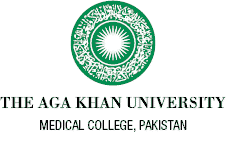Haematology and Transfusion Medicine
Service
 The Section of Haematology consists of the following three subsections:
The Section of Haematology consists of the following three subsections:
Haematology
This subsection deals with routine as well as special haematology tests such as Complete Blood Count (CBC), reticulocyte count, G6PD assay, ESR, osmotic fragility, body fluid cell enumeration, hemoglobin variant analysis by high performance liquid chromatography and examination of bone marrow aspirate and trephine biopsies. Special cytochemical stains (such as Sudan Black B, PAS, iron stains) and immunohistochemistry are also applied on bone marrow cases for sub classification of various leukemias and lymphomas.
Haemostasis Laboratory
This subsection deals with routine coagulation tests like bleeding time, clotting time, prothrombin and partial thromboplastin time. Various specialized tests like thrombophilia screening, platelet aggregometry, factor assays, von Willebrand antigen and Rob Assay are also available.
Transfusion Medicine
Blood grouping, antibody screening, identification and compatibility testing are performed on a fully automated system. Around 100 donors are bled on daily basis, their blood is screened for various diseases and stored at the proper temperature. We have fully equipped facilities to prepare various blood products including irradiated blood bags. Apheresis instruments are also available, which are used for therapeutic and donor apheresis procedures along with stem cell harvesting.
Teaching
A very comprehensive teaching programme is in place, and it currently has nine residents, 77 technologists and 16 trainees on board. Formal lectures are delivered to doctors, technologists and trainees on a regular basis. Our fellowship programme is very strong and prepares doctors for careers in academic or clinical Haematology/oncology by providing rigorous and comprehensive training in the full spectrum of adult Haematology l and oncological disorders. The fellowship is a full five-year programme.
Residents are trained in laboratory aspects as well as in the clinical field. Basic and clinical research is an integral part of the training programme. Bringing the best of medical science to clinical practice is a major goal and a broad range of research opportunities are available. Residents are motivated to participate in conferences at the national as well as international level and present their research work. The educational programme also includes weekly journal club and case discussion. Routine and interesting cases are regularly presented in thrice weekly departmental consultation meetings.
Additionally, interactive and morphology sessions are scheduled for Phase 3 undergraduate students throughout the year.
Research
Research is an inseparable goal in our mission. The focus is to evaluate the epidemiology of various benign and malignant diseases. Audits focusing on laboratory quality assurance and molecular basis of disease as a road map to personalized medicine are other main research domains. Several good quality papers have been presented in various scientific meetings at the national and international levels. The section has also been awarded various research grants.


